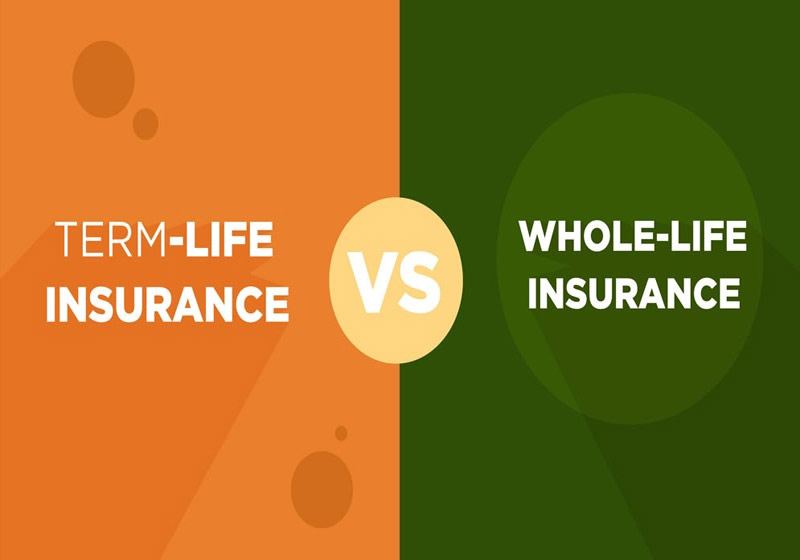Term Insurance vs Whole Life Insurance – Which one should you opt for?
Life insurance plays a significant role in securing your family’s financial commitments in case of your premature death. Though there are multiple variants of insurance plans, term insurance is considered the best primarily for the high coverage amount that it offers for the family due to any unfortunate event to the policyholder. However, a whole life insurance policy will best fit those who prefer to stay insured for a more extended period and look for maturity benefits.
To make sure that your loved ones are taken care of and don’t feel left out mentally or financially, in your absence, it is required for you to understand the difference between term and whole life insurance.
What is a Whole life insurance plan?
The meaning of this plan is in the name itself – whole life, wherein the insurance stays in force throughout the policyholder’s life. The maturity age of the policy usually is 100 years, and if the insured passes away within this period, the insurance company pays the death benefit to the nominee. On the other hand, if the insured outlives the age of 100 years, he/she will be entitled to receive the maturity benefits along with bonuses, if any.
What is a Term Insurance Policy?
A term insurance policy protects against the risk of death for a specified term or until the policyholder reaches the age of 65 or 80 years only and doesn’t offer maturity of survival benefits.
Therefore, the whole life insurance plans are particularly suitable for those who need generous life coverage for a longer tenure and have dependents to support during their later years.
Term Insurance vs Whole Life Insurance
Comparing the differences between the two policy types will help you make the right choice according to your life’s requirements before purchasing the desired plan. With numerous features offered by each plan, it can get confusing to choose the right one. It is why we have listed the essential differences between the whole life insurance policy and the term plan.
4 Major differences between Whole Life Insurance and Term Insurance
- Sum Assured: The coverage or sum assured is the value that shall be paid to the policyholder’s nominee on his death during the policy term. A high sum assured means your family’s financials would be taken care of without any problems in your absence. Term plans do offer high coverage, but it is limited only for a particular period of years. On the other hand, a whole life insurance policy provides more extended coverage up to the age of 100 years but a higher sum assured means a higher premium.
- Premium: The premium of term insurance plans is the lowest compared to any other insurance plan, as it provides only the death benefit in case of policyholder’s death. Whole life insurance plans protect for the long term and return the premium paid at the time of policy maturity along with survival benefits and bonuses if the insured person survives the policy term. Therefore, the premium of these policies is slightly higher.
- Maturity Benefits: While term plans pay no maturity benefits at the time of maturity of the policy or on survival of the policyholder, the Whole life insurance plans give 100% of the sum assured on maturity along with bonuses on the insured attaining the age of 100. Some insurers also provide an option to avail loan against the policy, which shall help you during emergencies.
- Policy Tenure: While comparing whole life insurance policy and term policy, the most significant differentiating factor is the tenure of these policies. A term plan typically offers a maximum tenure of 25 years or up to the age of 75 years, and if the policyholder survives this term, no survival benefit is provided.
In a whole life insurance policy, the term is 100 years which means the policyholder can be assured of receiving protection throughout his / her lifetime. Moreover, it helps in better financial planning during their later years for themselves and their families since these plans pay survival and maturity benefits if the insured outlives the policy tenure.
Term Insurance Policies Vs Whole Life Insurance Policies – Which is better?
Insurance depends on an individual’s requirement and has to be purchased after considering various factors such as income, family lifestyle, future needs, etc. Therefore, it is not possible to suggest one plan to everyone as the requirements differ for each person. But, we are presenting a few pointers based on which you may base your decision to buy the right plan.
- Savings: Some individuals prefer to buy a term plan because of the low premium and opt to invest the remaining amount in other short and long-term investments. But if you are someone who doesn’t have time to monitor your investments and savings, buying the best whole life insurance plan will help you combine insurance and savings as it offers maturity benefits and bonuses.
- Income for Dependents: If you are concerned about providing a better financial future for your dependents after your passing away, then in that case, a whole life insurance policy will create a legacy for your dependents as the premiums, maturity benefits, etc., are returned, which can be utilized to generate a corpus for their future well-being.
- Risk Protection: If you are looking to avail an insurance plan that offers a high coverage value at an affordable cost, then your go-to choice must be a term insurance policy. In case of your death, the high death benefit received by your nominee shall help them take care of your family, allow your children to achieve their goals, and close any debts or loans taken during your lifetime.
Therefore, whether it is a term insurance plan or a whole life insurance plan, their features serve a different purpose for each person who avails it. So it is prudent to base your purchase on your income level, family requirements, future lifestyle, goals, average life expectancy, health condition, premium payment potential, investment needs, etc.





























